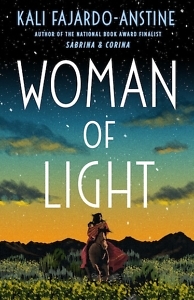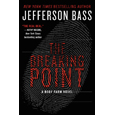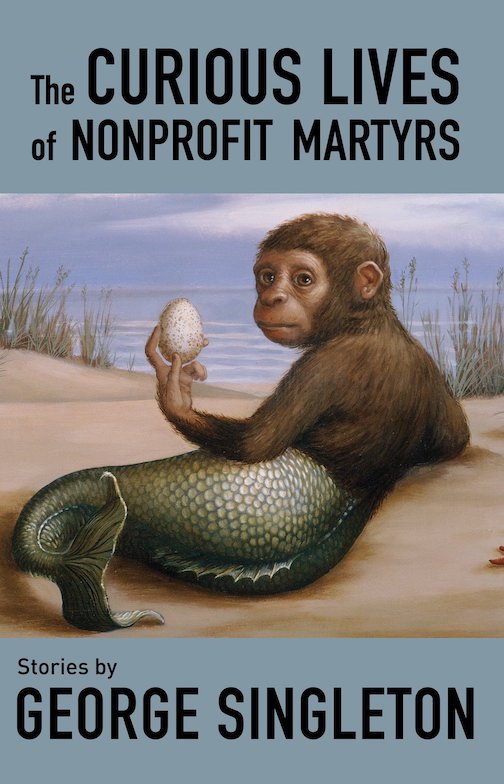An Unfamiliar Past
Woman of Light explores the persistence of stories
When authors choose an epigraph, they are giving the reader a peek into the heart of a story, offering someone else’s words as a hint at what’s to come in their own. National Book Award finalist Kali Fajardo-Anstine has chosen two passages to open her novel Woman of Light: one from an Ingmar Bergman film and the other taken from a statue at the National Archives: “What is past is prologue.”

This line, drawn from Shakespeare’s The Tempest, seems a simple truth for a piece of historical fiction, a story that insists the narratives of older generations have relevance to those who come after. But Woman of Light rejects such simplicity, asking readers to consider the ways the past might move through and around each generation, emerging into the present in complicated ways.
Perhaps unsurprisingly, the book opens with a prologue, set in 1868 in the “Lost Territory.” This geographical name may not be familiar; in fact, a search on the term produces nothing on the land to which Fajardo-Anstine alludes — the huge swaths of Mexico gained by the United States following the Mexican-American War. The opening pages introduce the oldest generations of this family saga: the Sleepy Prophet of Pardona Pueblo and an infant abandoned on the bank of an arroyo.
Desiderya, the Sleepy Prophet, had “dreamt of stories in her sleep” but was called from her bed to that arroyo, where she stood, “smoking her pipe and considering the sloping way blue darkness layered the nearby mountains.” The description goes on, “The Spanish had named the stream Lucero because starlight shimmered over the water’s trickling back, as if the earth had been saddled with sky.” Fajardo-Anstine writes effortlessly stunning sentences, each unspooling to create a rich and engrossing tableau. In fact, Woman of Light is much like the visions Desiderya experiences, plunging readers into an unfamiliar past, one that seems to hold vital truths if only we will see them.
 The child Desiderya rescues is Pidre, later to marry the widowed sharpshooter Simodecea Salazar-Smith. Their love produces Sara and Maria Josefina — one the mother of Luz and Diego, the other the woman who would raise them. Luz is the shining heart of the novel, so much more than “just some poor Indian and Spanish laundry girl.” She, too, is a seer, able to see both the future and the past in sharp, sometimes painful detail. After the children’s abusive father leaves and Sara loses herself in grief, Maria Josie takes Luz and Diego to Denver, and as each section unfolds, readers will float between time and place, every character fully alive in the present and the past.
The child Desiderya rescues is Pidre, later to marry the widowed sharpshooter Simodecea Salazar-Smith. Their love produces Sara and Maria Josefina — one the mother of Luz and Diego, the other the woman who would raise them. Luz is the shining heart of the novel, so much more than “just some poor Indian and Spanish laundry girl.” She, too, is a seer, able to see both the future and the past in sharp, sometimes painful detail. After the children’s abusive father leaves and Sara loses herself in grief, Maria Josie takes Luz and Diego to Denver, and as each section unfolds, readers will float between time and place, every character fully alive in the present and the past.
Following an ill-advised relationship with an Anglo woman, Diego is forced to flee Denver, leaving behind his family and his work as a snake-handler. The snakes, whose “tips hissed like tin cans of pebbles,” can’t accompany him on the migrant circuit, where “every hello possessed within itself a farewell. People were as transient as crops, picked and packaged, shipped afar, feeding the mouths of families Diego would never see.” In his absence, Luz works as a secretary for David, son of the generous Greek grocer in their neighborhood, who has come back home to practice law and fight for social justice. Through her relationships with David and the gentle musician Avel, Luz is forced to reckon with her warring desires and the complicated role of race and class.
With any multi-generational narrative, it is impossible to summarize the complex layers of detail woven by the author. This book is about Luz and Diego and Denver and the Lost Territory; ultimately, though, it is about stories — who gets to tell them and which ones survive. Pidre understands this after leaving the Lost Territory and stumbling into the entertainment industry:
It was in that moment that Pidre realized he had entered the strange world of Anglo myth, characters resurrected from the language of story, populating the realm of the living, side by side, if only for one night and one night only. Pidre came from storytelling people, but as he passed a big top devoted to the reenactment of Custer’s Last Stand, he couldn’t help but think that Anglos were perhaps the most dangerous storytellers of all — for they believed only their own words, and they allowed their stories to trample the truths of nearly every other man on Earth.
Woman of Light proves the past is the prologue, insisting we map the Lost Territory onto our stories even when search engines don’t recognize the term. It is a sprawling and gorgeous exploration of the land we have come from, the past we have failed to acknowledge, and the persistence of stories through time and space.

Sara Beth West is a writer and reviewer, usually found at sarabethwest.com. She lives in Chattanooga with her family, dogs, and a cat who always, always, always thinks it is time for dinner.


